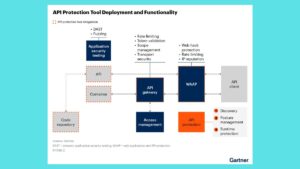HRTech Futures: Banking Tech Insights Shaping Workforce Management in Finance

The banking and financial services industry is undergoing significant change, driven not only by technological advancements in financial technology (FinTech) but also by innovations in human resources technology (HRTech). As banks adapt to digital transformation and changing workforce dynamics, HRTech is playing a pivotal role in optimizing talent management, employee engagement, and operational efficiency. This blog delves into the intersection of HRTech and banking, exploring key insights and trends shaping the future of workforce management in the financial sector.
1. Digital Transformation and the Need for Agile HR Solutions
As banks embrace digital transformation, the need for agile HR solutions becomes more apparent. The financial sector is not only competing for tech-savvy talent but also dealing with the challenges of remote work, skill gaps, and changing employee expectations. To address these needs, HRTech is helping banks automate routine HR tasks, streamline recruitment processes, and enhance employee experiences.
- Automated Recruitment and Onboarding: HRTech tools, such as applicant tracking systems (ATS) and AI-powered recruitment platforms, are transforming how banks hire talent. These tools can automate resume screening, schedule interviews, and facilitate seamless onboarding, making it easier to attract and integrate top talent.
- Remote Work Management: With remote and hybrid work models becoming more common, banks need tools that support virtual collaboration, performance tracking, and employee engagement. HRTech platforms enable remote workforce management by providing real-time communication, goal tracking, and feedback mechanisms.
2. The Role of AI and Data Analytics in Workforce Planning
Artificial intelligence (AI) and data analytics are increasingly being used in HRTech to enhance workforce planning and decision-making. In banking, where compliance and risk management are crucial, AI-driven tools can help banks optimize HR strategies while maintaining regulatory standards.
- Predictive Workforce Analytics: AI algorithms can analyze historical workforce data to predict future staffing needs, identify skill gaps, and assess employee turnover risks. This proactive approach allows banks to make informed decisions on talent acquisition, training, and workforce optimization.
- AI-Powered Learning and Development: Personalized learning paths driven by AI can help employees acquire new skills and stay up-to-date with industry regulations and trends. This is especially important in the banking sector, where continuous learning is required to navigate complex financial products and regulatory changes.
3. Compliance and Risk Management: The Impact of RegTech on HR
Compliance is a top priority in the banking industry, and regulatory technology (RegTech) is emerging as a key component of HRTech. By integrating RegTech solutions, banks can automate compliance-related tasks and reduce the risk of regulatory violations.
- Automated Compliance Tracking: HRTech platforms can track employee certifications, training completion, and other compliance requirements. Automated alerts help ensure that employees stay compliant with industry regulations, reducing the risk of fines and penalties.
- Data Privacy and Security: With HRTech handling sensitive employee data, banks must prioritize data security and comply with data protection regulations, such as GDPR. Advanced encryption, secure access controls, and compliance monitoring tools are essential for safeguarding employee information.
4. Employee Engagement and Well-Being: A Top Priority
Employee engagement and well-being have taken center stage in workforce management, especially in high-pressure industries like banking. HRTech solutions that focus on employee satisfaction and well-being can help banks improve retention rates and foster a more productive work environment.
- Employee Feedback and Pulse Surveys: HRTech tools that collect real-time feedback through pulse surveys and employee engagement platforms enable banks to gauge employee sentiment and address concerns proactively. This data-driven approach helps identify areas for improvement in workplace culture and management practices.
- Wellness Programs and Mental Health Support: The demanding nature of banking can lead to employee burnout. HRTech platforms that offer wellness programs, mental health resources, and stress management tools can support employees’ well-being and help them maintain a healthy work-life balance.
5. The Integration of Learning Management Systems (LMS) for Continuous Development
Continuous learning and upskilling are critical in the banking industry due to rapid changes in financial regulations, technology, and customer expectations. Learning management systems (LMS) are becoming an integral part of HRTech, providing employees with the tools they need to enhance their skills and stay competitive.
- Compliance Training: Banks can use LMS platforms to deliver compliance training and ensure that employees stay informed about the latest regulatory changes. Interactive modules, quizzes, and assessments help employees retain important information and apply it to their roles.
- Skill Development and Career Growth: HRTech platforms can support employees’ career development by offering personalized learning paths, certifications, and skill assessments. This approach encourages continuous learning and helps banks cultivate a skilled workforce that is ready to tackle future challenges.
6. Diversity, Equity, and Inclusion (DEI) Initiatives
Diversity, equity, and inclusion (DEI) are becoming more prominent in the financial services sector as banks seek to foster inclusive work environments. HRTech can play a vital role in supporting DEI initiatives by providing tools that promote unbiased recruitment, track diversity metrics, and support employee resource groups.
- Unbiased Recruitment Practices: AI-powered HRTech solutions can reduce bias in hiring by anonymizing resumes and evaluating candidates based on skills and qualifications rather than demographic information. This helps banks build diverse teams and promote equal opportunities.
- Tracking and Reporting DEI Metrics: HRTech platforms enable banks to monitor DEI efforts by collecting data on workforce demographics, pay equity, and employee sentiment. Regular reporting on DEI metrics helps banks assess their progress and identify areas for improvement.
7. Virtual Reality (VR) and Augmented Reality (AR) in Training and Development
VR and AR technologies are being incorporated into HRTech to enhance training and development in the banking sector. These immersive technologies can simulate real-life scenarios, providing employees with hands-on experience in a virtual environment.
- Virtual Training for Compliance and Risk Management: VR can be used to create realistic simulations for compliance training, allowing employees to practice handling complex situations in a controlled environment. This approach helps improve retention of regulatory knowledge and enhances risk management skills.
- Soft Skills Development: AR tools can be used for soft skills training, such as communication, negotiation, and customer service. Employees can engage in interactive simulations that mimic real-world interactions, improving their ability to handle customer queries and resolve issues effectively.
8. Cloud-Based HR Solutions for Scalability and Flexibility
Cloud computing is transforming HRTech by providing scalable and flexible solutions that can adapt to the needs of banks, regardless of their size. Cloud-based HR platforms enable banks to streamline HR operations, reduce costs, and enhance data accessibility.
- Centralized Data Management: Cloud-based HRTech solutions allow banks to store employee data in a centralized system, making it easier to access, manage, and analyze. This improves decision-making and ensures consistency across different branches and locations.
- Scalability for Growing Organizations: As banks expand, cloud-based HR platforms can scale to accommodate new hires, additional branches, and changing HR needs. This flexibility is essential for maintaining efficiency in a growing organization.
9. Gamification in HRTech: Engaging Employees through Play
Gamification, or the use of game-like elements in non-game contexts, is gaining traction in HRTech as a way to engage employees and make training more interactive. In the banking industry, gamification can be used to enhance learning, motivate employees, and improve job satisfaction.
- Gamified Learning Modules: Incorporating game mechanics into compliance training or skill development programs can make the learning process more enjoyable and increase retention. Employees can earn badges, points, or rewards for completing training modules, encouraging continuous learning.
- Performance Recognition: Gamification can also be used to recognize and reward employee achievements. For example, employees who reach certain milestones or exceed performance targets can earn digital rewards or incentives, fostering a culture of recognition.
10. The Future of HRTech in Banking: Embracing Innovation
The future of HRTech in banking will be driven by continued innovation in AI, data analytics, and cloud-based solutions. As the banking industry evolves, HRTech will play an increasingly strategic role in workforce management, enabling banks to attract top talent, optimize employee experiences, and maintain compliance in a dynamic regulatory environment.
- AI-Enhanced HR Services: Future HRTech solutions will leverage AI to provide more personalized and predictive HR services, such as career path recommendations, automated scheduling, and advanced analytics for workforce planning.
- Focus on Employee Well-Being: The emphasis on employee well-being will grow, with HRTech platforms offering more holistic solutions that integrate physical health, mental health, and financial well-being into a unified employee experience.
Conclusion
HRTech is playing a transformative role in shaping workforce management in the banking industry. By leveraging technology to streamline HR processes, improve employee engagement, and ensure compliance, banks can navigate the challenges of digital transformation while maintaining a competitive edge.
As the banking sector continues to evolve, HRTech will be at the forefront of driving workforce innovation, enabling financial institutions to adapt to changing employee expectations and regulatory requirements. The future of HR in banking will be defined by technology, with HRTech solutions empowering banks to create more agile, resilient, and people-focused organizations.






